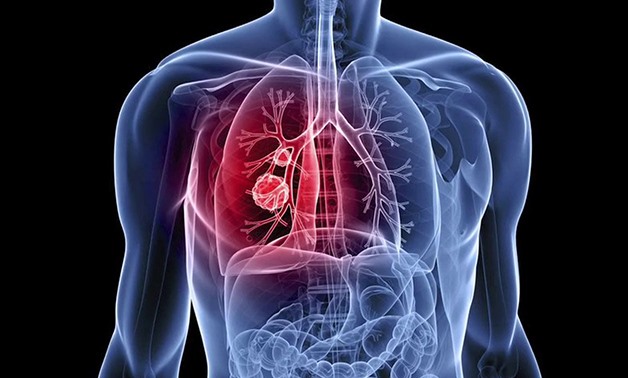
Lung Cancer- CC Via Vimeo
CAIRO, June 6, 2017 :A new kind of targeted therapy slowed the advance of an aggressive form of lung cancer for about two years, or about three times as long as the standard treatment, researchers said Monday.
The Roche-made drug known as alectinib (Alecensa) could become a new tool in the fight against non small cell lung cancer.
About five percent of these cancers are ALK-positive, meaning they have a genetic rearrangement where the ALK gene is fused with another gene, said the findings released at the American College of Clinical Oncology conference.
In the United States, about 12,500 people are diagnosed with ALK-positive non small cell lung cancer each year.
"Alectinib reduced the risk of cancer progression or death by 53 percent compared with crizotinib," the current standard treatment, said the report.
The median, or midpoint, of survival without the cancer getting worse was 25.7 months with alectinib and 10.4 months with crizotinib.
"Nobody imagined it would be possible to delay advanced lung cancer progression by this much. Most targeted therapies for lung cancer are associated with a median progression-free survival of roughly 12 months", said lead study author Alice Shaw, director of thoracic oncology at Massachusetts General Hospital Cancer Center in Boston.
"While both treatments cross the blood-brain barrier, alectinib was more effective in preventing brain metastases than crizotinib, because it can better penetrate into the brain."
More research is needed to see if the new drug extend patients' lives longer than crizotinib.
"The fact that this second-generation targeted treatment halted advanced lung cancer growth for more than two years while preventing brain metastases is a remarkable result in this difficult disease," said John Heymach, an ASCO expert who was not involved in the study.
"Thanks to this advance, we are on the road to helping these patients live longer and better."
Comments
Leave a Comment